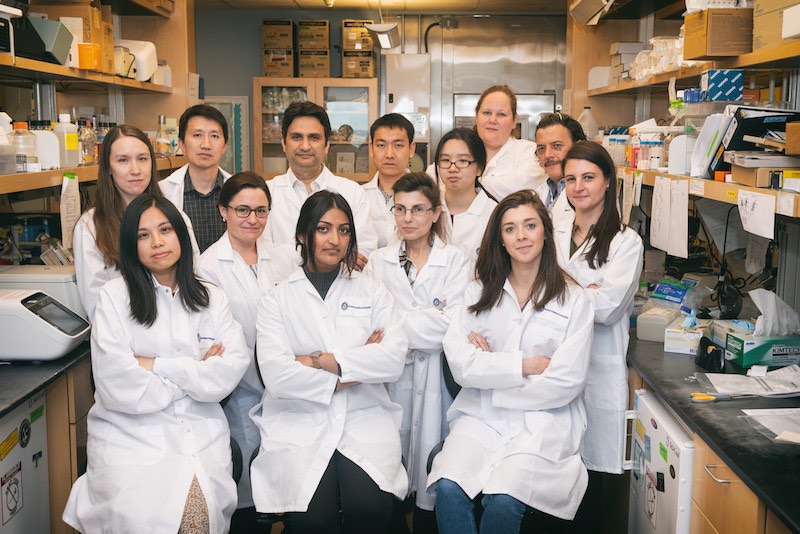If you or your child has a known or suspected genetic disorder, or if you are an expectant parent with a genetic disorder in the family, Boston Children’s is here to help. Founded in 1965, our Division of Genetics and Genomics provides comprehensive clinical care including diagnostics, genetic counseling, and individualized management in concert with other specialties for people of all ages.
As one of the largest pediatric genetics practices in the country, we have experience with both common conditions and very rare conditions affecting just a few hundred children in the world. We specialize in finding answers for complex and hard-to-diagnose genetic conditions, sometimes applying new technologies through our research labs when existing genetic tests are negative or inconclusive.
Our large program includes more than 30 board-certified clinical geneticists, genetic counselors, dieticians, and nursing staff. In addition to seeing patients at Boston Children's Brookline (2 Brookline Place), which is a short distance from the hospital, we see patients at our Brockton, Lexington, Norwood, Peabody, Waltham, and Weymouth locations.
We also work closely with the Maternal Fetal Care Center (MFCC), which supports the needs of expectant families whose unborn babies have confirmed or suspected congenital anomalies.
Genetics services we provide
Diagnostic services and testing
We facilitate a variety of genetic tests, including tests for single or multiple genes, chromosomal studies, and whole-exome sequencing, which looks at all the genes in a person’s DNA that code for proteins.
At the first visit, a board-certified clinical geneticist will:
- physically examine you or your child, looking for features that may give clues to a genetic diagnosis
- ask questions about personal and family medical history
- recommend other tests, such as imaging tests or blood tests, that may be helpful in guiding genetic testing.
Genetic counseling
Working closely with the geneticist, the genetic counselor’s job is to help families understand the tests that are recommended, the implications of genetic testing, and what to expect from each test. Once a diagnosis is made, the genetic counselor will:
- interpret the test results and what they mean
- advise about what medical services may be needed now, and what problems may arise in the future
- provide counseling for parents who are planning to have more children, and for extended family members about whether they should also consider being tested.

Solving genetic mysteries, in the NICU and beyond
Customized care and care coordination
Once a genetic diagnosis is made, we work with families to develop a care plan based on anticipated medical needs. Genetic disorders can cause different kinds of medical problems, so we provide referrals to the appropriate medical specialists at Boston Children’s and offer long-term, coordinated follow-up to ensure optimal care. If preferred, we can partner with and advise your existing care providers.
Research and discovery
Since our Division of Genetics and Genomics was founded in 1965, the field of genetics has advanced by leaps and bounds — and continues to do so today. New genes are constantly being identified and sometimes offer clues to better treatments, whether it be choosing among existing treatments or developing something brand new.
We often invite our patients to participate in research studies to help us understand the genetics and basic biology of disease. Our large team of researchers is exploring the genetics of a wide range of conditions, from neuromuscular disorders to brain malformations to heart disorders to metabolic disorders.
Recent advances are beginning to open the door to correcting some genetic disorders through drugs, gene therapy, gene editing and other genetic interventions. We are working with scientists and disease specialists around the hospital to develop such treatments.
See more about research in the Division of Genetics and Genomics.

